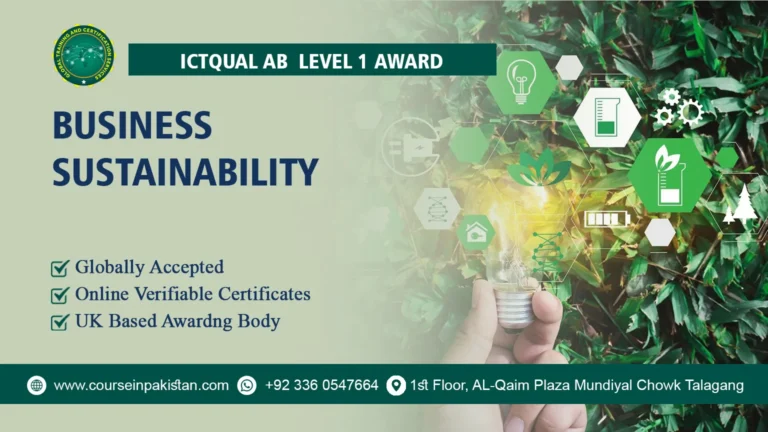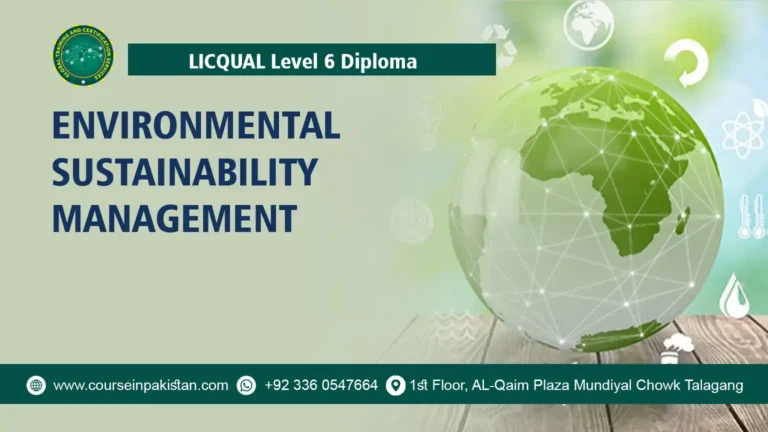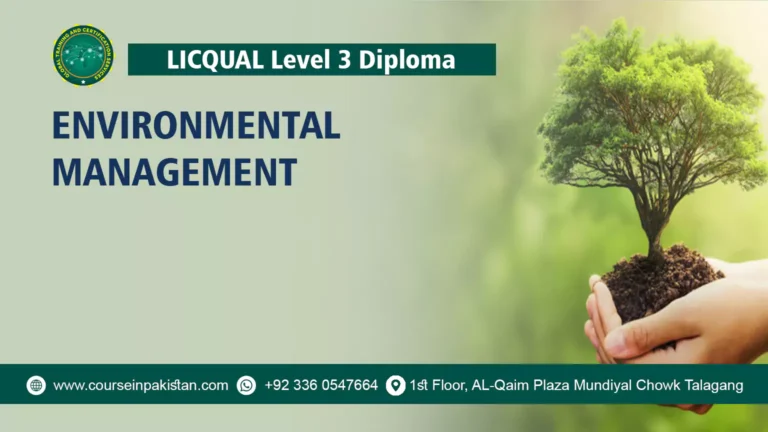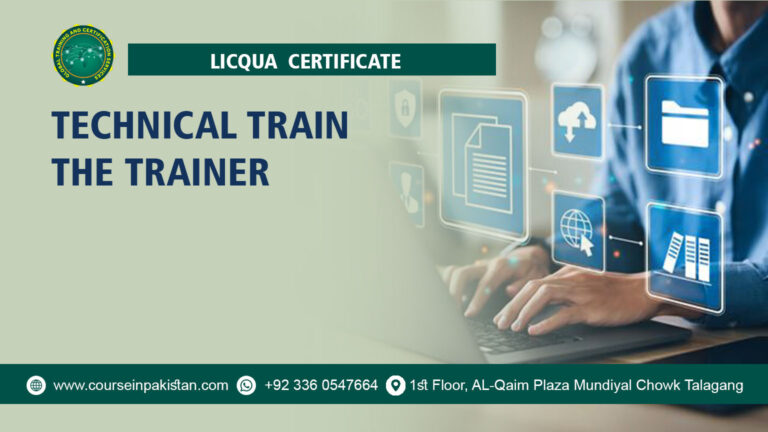
The ICTQual Level 6 Diploma in Information Technology Engineering (360 Credits – Three Years) is a globally recognized qualification designed to provide advanced knowledge and practical skills in IT engineering. This program equips learners with expertise in networking, software development, cybersecurity, cloud computing, and emerging technologies, preparing them for high-level IT roles across industries. Whether you are a fresh graduate aiming to build a strong technical foundation or an experienced professional seeking formal recognition of your skills, this diploma provides a pathway to professional growth and global employment opportunities.
The program emphasizes both theoretical understanding and practical application, enabling learners to develop problem-solving, analytical, and project management skills. Assignment-based learning offers flexibility, allowing students to study at their own pace while balancing career and personal commitments.
Course Overview
Key Highlights of the Course:
- Fully assignment-based program for self-paced learning.
- 360 credits qualification recognized internationally.
- Suitable for fresh graduates and experienced IT professionals.
- British Council verificable, MOFA and Embassy attestable for global recognition.
- Eligible for Iqama approval, enhancing career opportunities in Gulf countries.
Course Benefits
1. Career Advancement
- Opens opportunities in IT engineering, network management, software development, and cybersecurity.
- Recognized qualification for managerial and senior technical roles.
- Enhances credibility with global employers.
- Prepares learners for leadership and project management positions.
- Supports engagement in innovative technology projects.
2. Flexibility and Convenience
- Fully assignment-based, allowing learners to study at their own pace.
- Access learning materials and complete assessments from anywhere.
- Suitable for working professionals to balance learning and career.
- Enables fresh learners to complete the program within three years.
- Allows experienced professionals to fast-track certification based on prior knowledge.
3. Global Recognition
- British Council verificable, MOFA and Embassy attestable, enhancing international employability.
- Qualification accepted for Iqama approval in Gulf countries.
- Recognized by global employers for advanced IT expertise.
- Opens opportunities for consultancy, research, and international IT projects.
4. Suitable for All Levels of Experience
- Fresh learners complete 36 assignments within three years.
- Experienced professionals can validate knowledge through professional discussions.
- Encourages lifelong learning and continuous professional development.
5. Comprehensive IT Engineering Knowledge
- Covers software engineering, networking, cybersecurity, cloud computing, and database management.
- Emphasizes practical problem-solving and project-based learning.
- Prepares learners for leadership, innovation, and decision-making roles.
Course Study Units
This qualification, the ICTQual Level 6 Diploma in Information Technology Engineering 360 Credits – Three Years, consists of 36 mandatory units.
Year 1: Foundation and Core Concepts
- Introduction to Information Technology
- Computer Architecture and Hardware
- Operating Systems Fundamentals
- Networking Fundamentals
- Programming Principles
- Database Design and Management
- Web Technologies and Development
- IT Support and Troubleshooting
- Mathematics for IT
- Introduction to Cybersecurity
- Systems Analysis and Design
- Project Management Fundamentals
Year 2: Specialized IT Engineering
- Advanced Networking and Protocols
- Cloud Computing and Virtualization
- Advanced Programming Techniques
- Advanced Database Systems
- Mobile Application Development
- System Security and Risk Management
- Enterprise IT Infrastructure
- Software Engineering and Development Lifecycle
- IT Management and Governance
- Business Intelligence and Data Analytics
- Human-Computer Interaction
- Ethical and Legal Issues in IT
Year 3: Professional Development and Advanced Implementation
- Advanced Networking Technologies
- Artificial Intelligence and Machine Learning
- Cybersecurity for IT Professionals
- Cloud Infrastructure and Services
- Project Management for IT Projects
- Advanced Software Development Practices
- System Integration and Implementation
- IT Research Methodologies
- Professional Practice and Ethics
- Internship/Industry Placement
- Capstone Project I: System Design and Development
- Capstone Project II: Evaluation and Implementation
Learning Outcomes
Year 1: Foundation and Core Concepts
1. Introduction to Information Technology
- Understand the scope and role of IT in business and society.
- Identify major IT domains and career pathways.
- Apply basic IT concepts to problem-solving scenarios.
2. Computer Architecture and Hardware
- Describe computer system components and their functions.
- Understand data storage, processing, and memory systems.
- Apply knowledge to configure and troubleshoot hardware systems.
3. Operating Systems Fundamentals
- Understand operating system architectures and functionalities.
- Manage processes, memory, and storage effectively.
- Apply OS concepts in practical computing environments.
4. Networking Fundamentals
- Understand basic networking principles and topologies.
- Configure and manage simple network systems.
- Troubleshoot common networking issues.
5. Programming Principles
- Apply core programming concepts such as variables, loops, and functions.
- Develop simple programs using structured programming techniques.
- Solve computational problems using programming logic.
6. Database Design and Management
- Design relational database schemas.
- Apply SQL for data querying and manipulation.
- Understand database administration and management principles.
7. Web Technologies and Development
- Develop basic web pages using HTML, CSS, and JavaScript.
- Understand client-server architecture.
- Apply web development best practices for usability and accessibility.
8. IT Support and Troubleshooting
- Diagnose and resolve hardware, software, and network issues.
- Apply systematic troubleshooting techniques.
- Provide IT support in professional environments.
9. Mathematics for IT
- Apply mathematical principles to IT problem-solving.
- Use discrete mathematics and statistics in computing applications.
- Interpret data and solve algorithmic problems.
10. Introduction to Cybersecurity
- Understand basic cybersecurity principles and threats.
- Implement fundamental security measures for systems and networks.
- Recognize ethical responsibilities in IT security.
11. Systems Analysis and Design
- Apply system development methodologies to IT projects.
- Analyze user requirements and develop system specifications.
- Design system solutions to meet organizational needs.
12. Project Management Fundamentals
- Understand project management principles and life cycles.
- Plan and monitor IT projects effectively.
- Apply risk management and quality assurance in project execution.
Year 2: Specialized IT Engineering
13. Advanced Networking and Protocols
- Configure and manage complex network systems.
- Understand network protocols and communication standards.
- Apply network troubleshooting and optimization techniques.
14. Cloud Computing and Virtualization
- Understand cloud service models and deployment strategies.
- Configure virtualized IT environments.
- Apply cloud solutions to enterprise-level IT infrastructure.
15. Advanced Programming Techniques
- Develop object-oriented and modular programs.
- Apply programming paradigms for complex problem-solving.
- Optimize code performance and maintainability.
16. Advanced Database Systems
- Design and manage large-scale, distributed databases.
- Implement data security, integrity, and backup solutions.
- Apply database optimization techniques.
17. Mobile Application Development
- Design and develop mobile applications for various platforms.
- Apply user interface and user experience best practices.
- Test and deploy mobile apps effectively.
18. System Security and Risk Management
- Identify IT system vulnerabilities and threats.
- Develop risk assessment and mitigation strategies.
- Implement comprehensive security frameworks.
19. Enterprise IT Infrastructure
- Plan and deploy enterprise-wide IT systems.
- Integrate hardware, software, and network components.
- Ensure scalability, reliability, and performance of IT infrastructure.
20. Software Engineering and Development Lifecycle
- Apply software development life cycle methodologies.
- Manage project requirements, design, implementation, and testing.
- Ensure quality assurance and documentation compliance.
21. IT Management and Governance
- Apply IT governance frameworks and policies.
- Align IT strategy with organizational goals.
- Monitor IT performance and compliance.
22. Business Intelligence and Data Analytics
- Analyze business data for strategic decision-making.
- Apply data visualization and reporting tools.
- Understand predictive analytics and machine learning applications.
23. Human-Computer Interaction
- Design user-friendly and accessible IT systems.
- Apply usability principles and interaction design techniques.
- Evaluate interface effectiveness and user satisfaction.
24. Ethical and Legal Issues in IT
- Understand IT-related laws and regulations.
- Identify ethical issues in IT operations and development.
- Apply professional conduct and compliance standards.
Year 3: Professional Development and Advanced Implementation
25. Advanced Networking Technologies
- Configure advanced network topologies and protocols.
- Apply network security and optimization techniques.
- Evaluate emerging networking technologies and trends.
26. Artificial Intelligence and Machine Learning
- Understand AI and ML concepts, algorithms, and applications.
- Develop basic AI/ML models for practical problems.
- Evaluate the ethical and business implications of AI solutions.
27. Cybersecurity for IT Professionals
- Implement advanced cybersecurity measures.
- Conduct vulnerability assessments and penetration testing.
- Manage IT security incidents effectively.
28. Cloud Infrastructure and Services
- Design and deploy cloud-based IT solutions.
- Monitor cloud performance, scalability, and security.
- Apply best practices in cloud resource management.
29. Project Management for IT Projects
- Apply advanced project management techniques for IT initiatives.
- Use project planning and tracking tools effectively.
- Ensure delivery within scope, time, and budget constraints.
30. Advanced Software Development Practices
- Develop complex software systems with maintainable code.
- Apply advanced programming methodologies and frameworks.
- Conduct testing, debugging, and deployment of large-scale applications.
31. System Integration and Implementation
- Integrate diverse IT systems and technologies effectively.
- Apply testing, deployment, and monitoring techniques.
- Ensure seamless operation and interoperability of integrated systems.
32. IT Research Methodologies
- Conduct research using appropriate IT methodologies.
- Analyze and interpret research findings.
- Prepare professional research reports for academic or industry purposes.
33. Professional Practice and Ethics
- Apply ethical principles and professional standards in IT practice.
- Demonstrate leadership, teamwork, and communication skills.
- Make informed decisions in complex IT project scenarios.
34. Internship/Industry Placement
- Apply theoretical knowledge in real-world IT environments.
- Develop professional skills and industry experience.
- Evaluate and reflect on workplace learning outcomes.
35. Capstone Project I: System Design and Development
- Plan and execute a comprehensive IT system project.
- Apply knowledge from all previous units to practical implementation.
- Document and present design processes and solutions.
36. Capstone Project II: Evaluation and Implementation
- Evaluate system performance and effectiveness.
- Implement improvements based on testing and feedback.
- Present final outcomes and defend project decisions professionally.
Who is This Course For?
- 1. Fresh Graduates
- Individuals recently completing high school or Level 5 IT qualifications.
- Seeking a strong foundation in IT engineering.
- Motivated to pursue globally recognized certification.
- Interested in flexible, assignment-based learning.
- Aiming for careers in IT engineering, software development, or networking.
- 2. Experienced Professionals
- IT professionals with 6+ years of verifiable experience.
- Seeking formal recognition without completing all assignments.
- Interested in fast-track certification via professional discussions.
- Looking for global career advancement opportunities.
- Motivated to validate expertise for senior roles.
- 3. Career Switchers
- Professionals from related fields aiming to enter IT engineering.
- Motivated to gain practical and theoretical IT knowledge.
- Interested in flexible learning that balances work and study.
- Seeking international certification recognized by employers.
- Looking to expand career opportunities in technology sectors.
- 4. International Learners
- Individuals aiming for employment or higher studies abroad.
- Seeking MOFA, Embassy attested, and British Council verified certification.
- Looking for Iqama-eligible qualifications in Gulf countries.
- Interested in flexible study options without geographical constraints.
- Motivated to gain globally recognized IT engineering skills.
Future Progression
- Eligibility for senior IT engineering, network management, software development, or cybersecurity roles.
- Opportunities to pursue diploma in IT, Computer Science, or Software Engineering.
- Increased employability in global IT companies and consultancy firms.
- Potential for roles in project management, IT leadership, or technology innovation.
- Recognition for professional IT certifications and licenses internationally.
Academic Pathways:
- Progression to Master’s degrees in IT Engineering, Computer Science, or Software Engineering.
- Enrollment in specialized certifications such as cloud computing, cybersecurity, or AI technologies.
- Pathway to professional IT certifications and chartered IT engineer status.
- Access to research and academic opportunities in IT universities worldwide.
Conclusion
The ICTQual Level 6 Diploma in Information Technology Engineering (360 Credits – Three Years) is a flexible, globally recognized program designed for both fresh graduates and experienced professionals. With its assignment-based structure, learners can study at their own pace from anywhere in the world. The program is British Council verificable, MOFA and Embassy attestable, and eligible for Iqama approval, offering global career opportunities. Graduates gain advanced knowledge in networking, software engineering, cybersecurity, cloud computing, and emerging IT technologies, preparing them for leadership roles, consultancy, and international IT projects.






